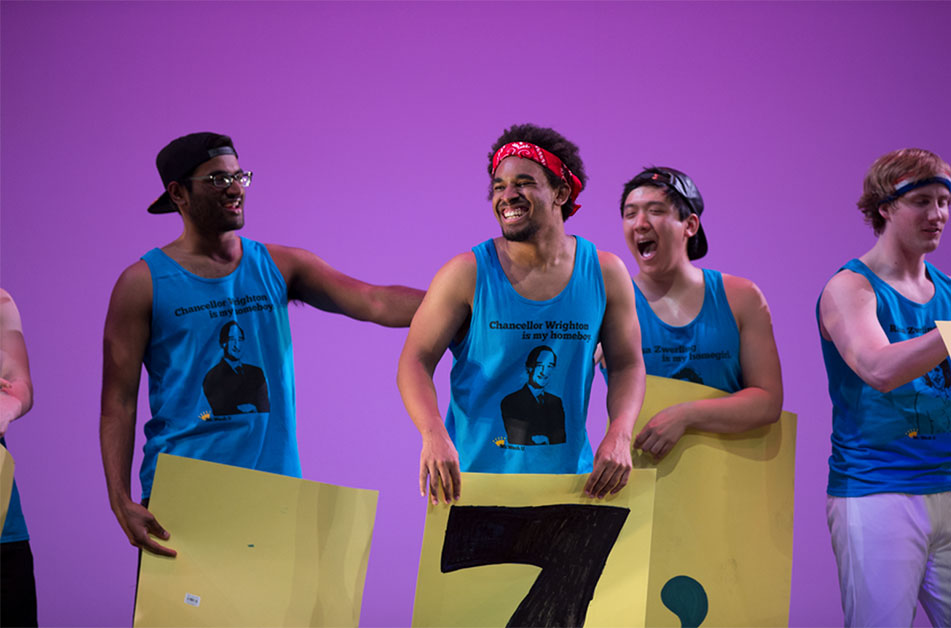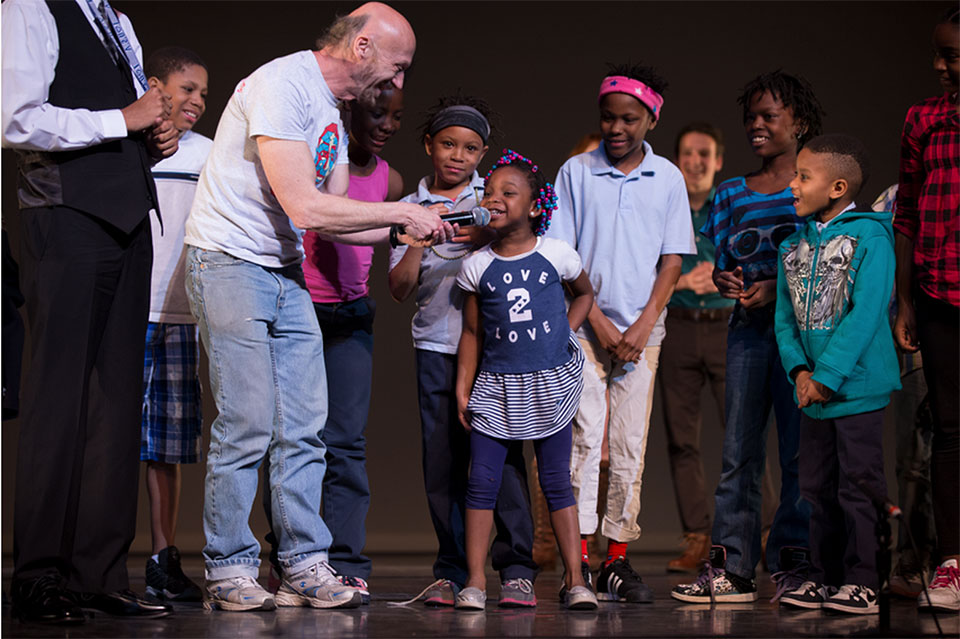
Senior David Dwight IV bested 15 candidates to win the title of Mr. Wash. U. The annual event raised $27,000 for urban arts program City Faces.
Photos by Whitney Curtis

City Faces founder Bob Hansman, associate professor of architecture, introduces some of the young artists who have benefited from the program.
Photos by Whitney Curtis
There are many ways to work for social justice. You can lead rallies. You can petition the powerful. And you can play the ukulele.
David Dwight IV, a senior studying biomedical engineering in the School of Engineering & Applied Science, has done them all.
On April 1 at Edison Theatre, Dwight strummed, sang and danced his way to the title of Mr. Wash. U., an annual talent show to benefit urban arts program City Faces.
“To me, being an activist isn’t just about marching,” said Dwight, who has led student protests against the region’s racial, economic and educational disparities. “There are so many ways in your life you can dedicate yourself to making change. Being an ambassador for City Faces is another way I want to help.”
Founded by Bob Hansman, associate professor of architecture, City Faces serves children who live in the Clinton-Peabody public housing development south of downtown St. Louis. This year’s event raised $27,000 for the organization. Dwight calls Hansman a role model.
“Community service can actually be detrimental if it is not sustainable,” Dwight said. “But Bob Hansman has used his passion to make a real, lasting impact. City Faces is an art program, but it is so much more. It has really empowered children who live in public housing academically and physically.”
After graduation, Dwight wants to continue his fight for social justice, this time through an engineering lens.
“I am interested in how engineering can tackle some of the huge health disparities we see in urban and rural environments,” Dwight said. “As biomedical engineers, we are interested in the newest and best technology. But often those technologies cost millions to implement, making them inaccessible to the people who need them most. That’s an injustice I want to help address.”